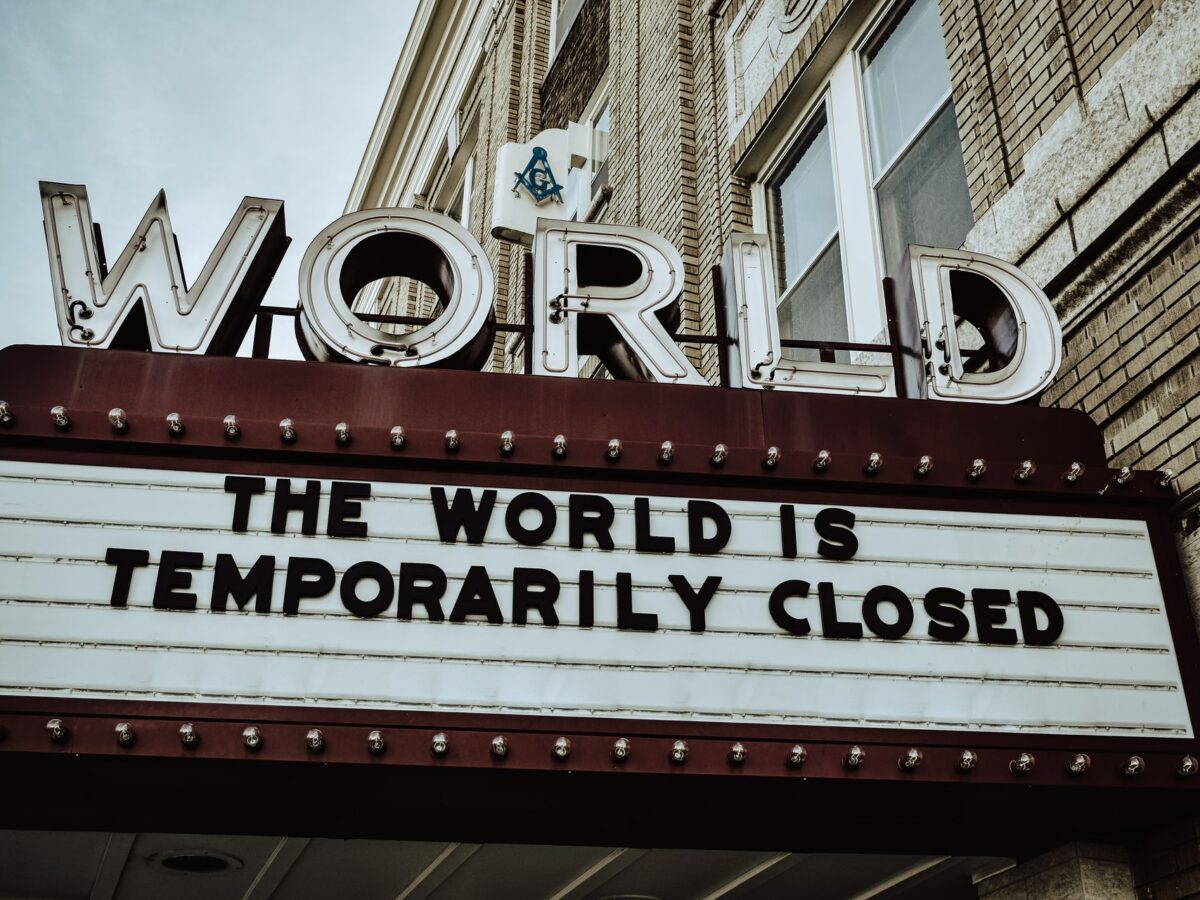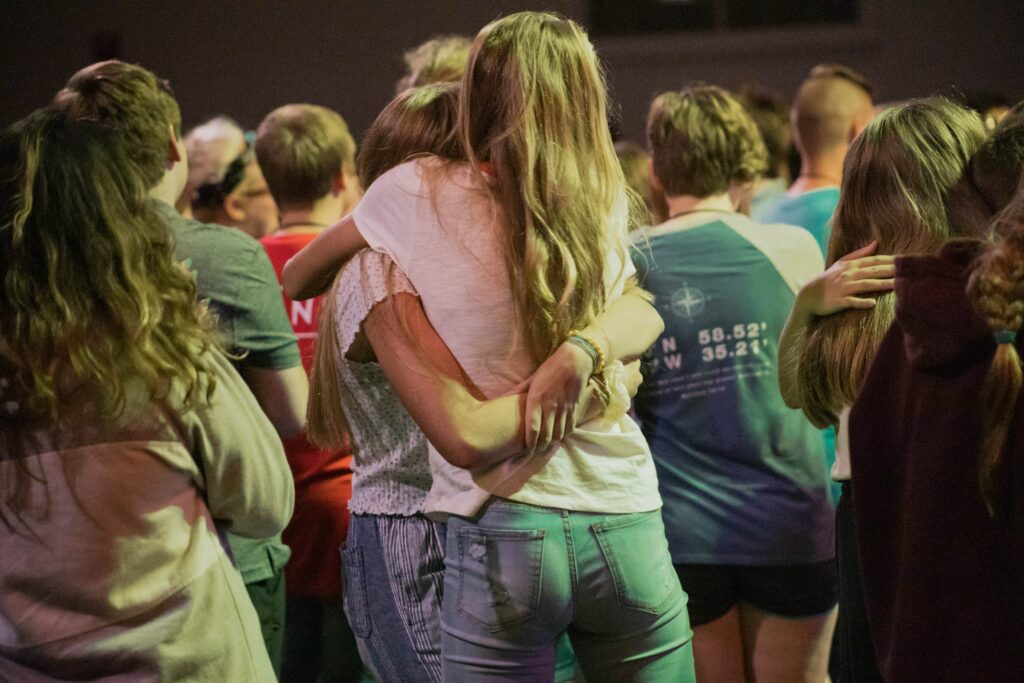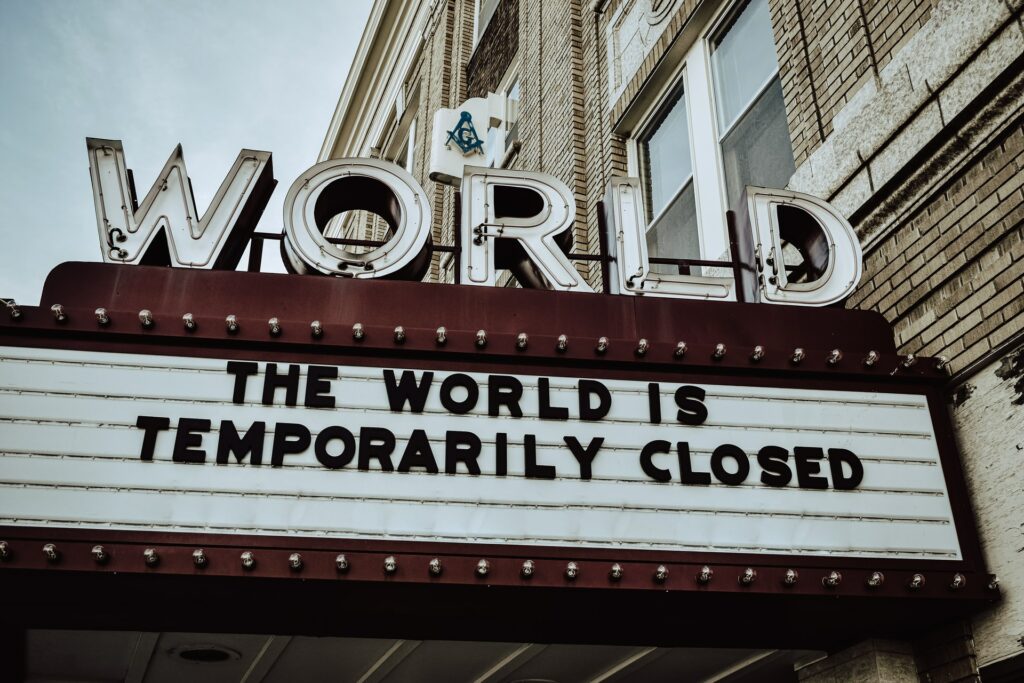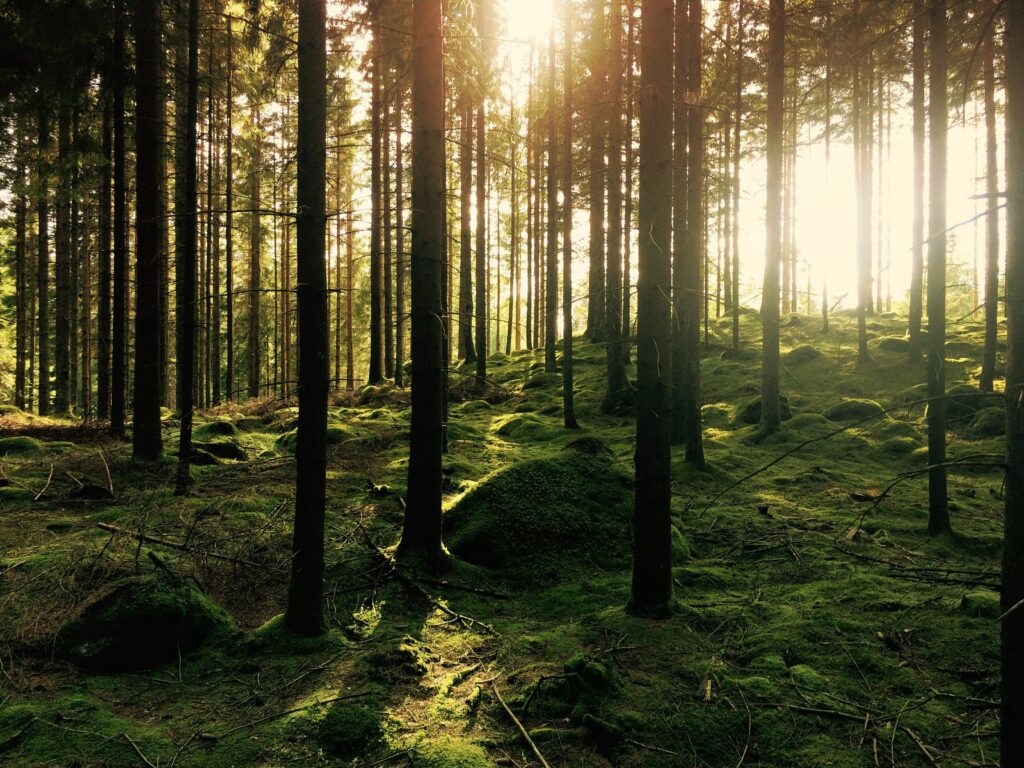No Hollywood Ending


Hollywood specializes in clear endings. Logical, when you have to attract people to cinemas, keep them enthralled, and then boot them out again two hours later, happily sated, so that the next group can go in. While it’s not the norm anymore to finish with ‘The End’ in giant letters, it is still pretty much standard to neatly wrap up all the loose ends. The boy gets the girl, the murderer is caught, they all live happily ever after. Even the films that choose for more ambiguous endings tend not to stop in the middle of –
If Hollywood had been in charge of corona, then we know how it would end – just like in disaster films such as ‘Deep Impact‘. A stirring speech from an inspiring leader, touching sadly on the sacrifices and lives lost, but then spurring us to look to the future, to rebuild our lives in the assurance that the peril is gone. The cheering, remarkably clean and well-groomed crowd would be filled with happily reunited families, couples on the verge of divorce who were brought back together by the dramatic events they experienced together, and grief for those lost would be limited to decorously moist eyes and a sad gaze into the distance.

I never expected a Hollywood ending to the corona crisis. What I had in mind was far more modest. We would have a celebratory meal at home, in preparation for going back to our normal routines the next day. I would go into work and happily greet my colleagues, shaking hands, even hugging them (at the risk of severely traumatizing some of the shy, introverted programmers I work with). The day would end with drinks together, everyone happily chatting in groups, while platters of snacks did the rounds.
Friday afternoon, we would fly to visit my family. At the airport, my children would dash to throw themselves into their grandparents’ arms with whoops of joy, while my eyes filled with tears. They would spend the next few days fighting over who got to sit on Granddad’s knee, to ride on their uncle’s shoulders, to give their aunt a good-night kiss. After they went to bed, the rest of us would cuddle up close on the sofa to talk over our experiences, giving a hug or holding a hand in the difficult moments.

Such modest expectations. And yet even these have been dashed. While my work has reopened (for which I am extremely grateful), the first day back was a severe anticlimax. Hardly anyone dared to come, and wandering through the empty corridors, passing the ‘Max 1 person’ signs and the hand gel dispensers before attempting to wrest the door open with my ‘hygiene hook’, was a dystopian experience. No need to worry about the acceptability of a hug, we couldn’t even shake hands.
A visit to my family in the UK is still impossible. Once it is allowed, it won’t be the carefree, joyous encounter I had envisioned. First of all, we will have to weigh up the risks of us picking up the coronavirus en route – in particular as my father is over 70. What if we infect him, and he becomes seriously ill? On the other hand, what will it do to him to spend months – even years – without seeing his children and grandchildren? If we do go, then we will also face the differences in regulations and attitudes. In the Netherlands, we are used to 1.5m distancing, have been going out to restaurants again for the past month, and campsites have reopened, with shared washing facilities. In the UK, they are used to 2m distancing, the pubs have only just reopened, and even visitors to private homes are advised not to share the same bathroom facilities. My UK family is consequently much more nervous, and has even suggested we could stay in a hotel when we come to visit. Under such circumstances, is a visit going to bring family togetherness, or awkwardness and tension?
One Hollywood film that apparently defied the convention to finish with ‘The End’ was the Alfred Hitchcock film ‘The Birds’. He did so as he wanted to give ‘the impression of unending terror’. Did that final scene with groups of eerily quiet birds mean that the attacks were over and the survivors would escape, or was it just a lull before it all started again? Despite restrictions being gradually relaxed, we don’t know if corona is coming to an end. There is talk of a second wave in the autumn, of restrictions lasting until we get a vaccine, or even corona being with us forever. Taking the optimistic view that we will be rid of the virus – at least as a significant threat – at some point, it is likely that we won’t know when we pass that point until some time later. Until the virus hasn’t reappeared for a given period of time, hasn’t mutated to a more virulent strain, until a vaccine has proven to be effective – and stayed effective. There will be no clear ending that we can celebrate. Instead, there will be a gradual, uncertain return to normal, with the knowledge that any progress could be snatched back in an instant if the virus rears its head again.

How do we handle this uncertainty? The safest option seems to be remaining at home, meeting as few people as possible. But how long can we continue to put our lives on hold? We may not have absolute certainty about safety from corona for a long time, if ever. Corona is also far from being the only threat we face in our everyday lives. In the past, we managed to live our lives despite the risk of being run over on the way to work, being mugged on an evening out, getting food poisoning in a restaurant. Absolute safety does not exist – the home is in fact the place where most accidents occur.
I am reminded of a sentimental ‘true life’ film I once saw, where the main character heard that her life-threatening cancer was miraculously in remission. She and her husband joyously announced that they would try for a baby. When the doctor warned, ‘You’re not out of the woods’, their melodramatic response was: ‘Then we’ll have the baby in the woods’. While the memory of this scene still makes me cringe, I think this is the only way ahead for us. We have to get on with living our lives, even under the threat of corona. Of course we shouldn’t throw caution to the winds, like the idiot eaten by wolves after he foolishly went into the woods alone in the deep of night. But if we take precautions, adapt the way we live and – crucially – learn to accept reasonable risks, then I think we’ll discover we can live in the woods quite comfortably.

This adaptation is already in progress. People are cautiously emerging, and finding ways to pick up their lives again. After that first surreal day of work in zombie-apocalypse surroundings, the life and soul has gradually been returning to my building, as more people trickle back in. No big social events, no summer barbecue on the terrace, but jokes in the office, gossip in the coffee queue, even plans for a quiet, socially distanced drink with a small group in the evening. The guidelines for scout camps run to 25 pages, but at least the camps are going ahead, to the ecstatic delight of our daughter and her friends. We don’t know if this is the end of the corona crisis, or a lull before a second wave comes along – if the thinning in the trees is the edge of the woods, or just a clearing. But right now, light is shining in, and there is a breath of fresh air. We have more space, more freedom. Now is the time to grab that chance and use it, to spend time living and create some beautiful memories to help sustain us through an eventual future lockdown.
A life lived in fear is a life half lived
Baz Luhrmann